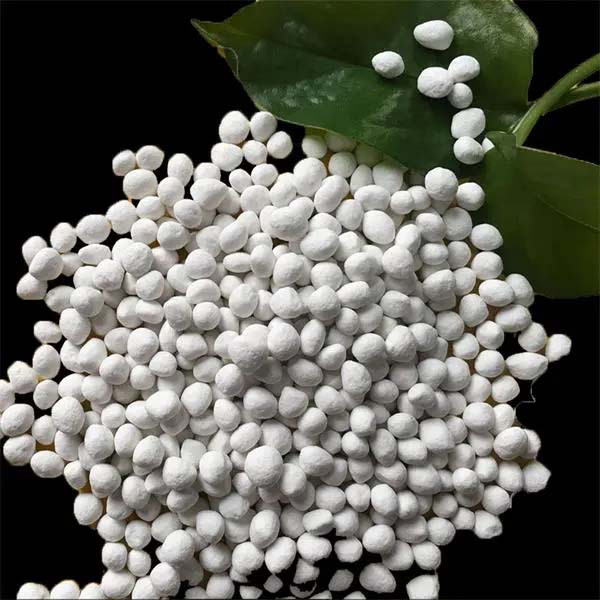Potassium sulfate, also known as sulfate of potash, is a commonly used fertilizer used to increase crop yields and improve plant health. It is a rich source of potassium, an essential nutrient that plays a vital role in various physiological processes in plants. There are two main types of potassium sulfate fertilizers on the market: granular grade and water-soluble grade. Both types have unique features and benefits, and understanding their differences can help farmers make informed decisions to maximize crop yields.
Granular potassium sulfate, such as 50% potassium sulphate granular, is a slow-release fertilizer that provides plants with a steady supply of potassium over an extended period of time. This type of fertilizer is usually applied to the soil before planting or during the early stages of crop growth. The particles gradually break down, releasing potassium ions, which are then absorbed by plant roots. This slow-release mechanism ensures plants have access to potassium when they need it, reducing the risk of leaching and wastage. Additionally, granular potassium sulfate helps improve soil structure and fertility over time, making it a sustainable option for long-term crop management.
Water-soluble potassium sulfate, on the other hand, is a fast-acting fertilizer that is easily soluble in water and is suitable for foliar application or irrigation fertigation. This fertilizer instantly supplies potassium to plants, which is especially beneficial during critical growth stages or periods of high demand. Water-soluble potassium sulfate is also ideal for resolving acute potassium deficiencies in plants as it can be quickly absorbed through the leaves or roots, quickly improving plant health and productivity.
Both granular and water-soluble potassium sulfate fertilizers have their own advantages when it comes to maximizing crop yields. Granular potassium sulfate is ideal for long-term soil fertility management, providing a continuous source of potassium throughout the growing season. Water-soluble grade potassium sulfate, on the other hand, provides a quick and targeted solution to meet immediate potassium needs and promote rapid plant growth and development.
In some cases, a combination of two types of potassium sulfate fertilizer may be beneficial in achieving optimal crop yields. For example, using granular potassium sulfate as a base fertilizer to establish a steady supply of potassium in the soil, and supplementing it with water-soluble grade potassium sulfate during critical growth stages or based on the plant’s specific needs, can help achieve a balance between the two and long-term soil fertility. and immediate nutrient availability.
Ultimately, the choice between granular potassium sulfate fertilizer and water-soluble potassium sulfate fertilizer depends on a variety of factors, such as the specific crop being grown, soil conditions, and crop growth stage. Farmers should consider soil testing and consulting with an agronomist to determine the fertilizer type and application method best suited for their specific farming practices and crop requirements.
In conclusion, potassium sulfate fertilizer, whether in granular or water-soluble grade form, plays a vital role in maximizing crop yields and promoting overall plant health. Understanding the differences between these two fertilizers and their respective benefits can help farmers make informed decisions to optimize their fertilizer management practices and achieve the best results in the field. By choosing the right type of potassium sulfate fertilizer and applying it effectively, farmers can contribute to sustainable agriculture and ensure successful crop production.
Post time: Jul-08-2024

